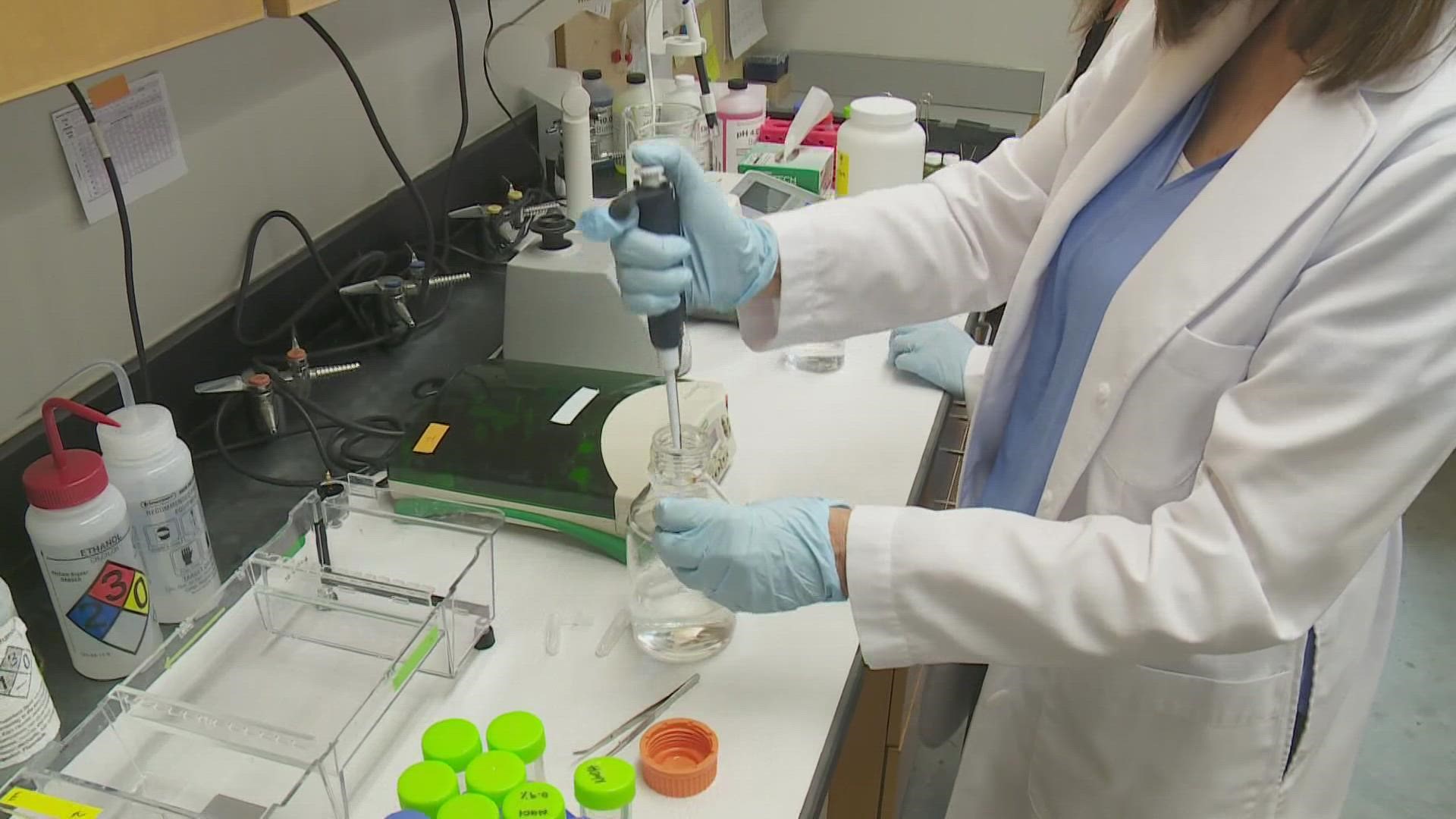NEW ORLEANS — A team of local doctors is working on national research study that could help women age better.
They are studying how estrogen hormone replacement affects the aging brain.
This knowledge could lead to customized treatment for generations to come.
Far more women have Alzheimer’s disease, and related dementia, than men. In fact, women make up two-thirds of Alzheimer’s patients. The reason? It's thought to be because women stop making the hormone estrogen at menopause.
“Decades of research in the laboratory indicate that estrogens are protective. They do these wonderful things to brain areas important to memory,” said Neurobiologist Dr. Jill Daniel, Director of the Tulane Brain Institute.
When healthy lab animals and nonhuman primates are given estrogen replacement after the equivalent of women's menopause, it helps their brains.
“The data are convincing that if they have a source of estrogen, they have better outcomes in the hippocampus and also the cortex (of the brain). If they lose their source of estrogen, and don't get it replaced, they have poorer outcomes,” Dr. Daniel said.
Doctors also know that chronic health problems like, type 2 diabetes, and high blood pressure, have the opposite effect on the brain, causing the brain to decline.
“And the question is, does estrogen have different effects in women who have type 2 diabetes, who have hypertension at the time of menopause?” Dr. Daniel said.
Dr. Daniel is the director of the Tulane Brain Institute, where more than 30 scientists were just awarded a competitive, $14 million grant from the National Institute on Aging. Over the next five years, they will study if there are molecular switches that keep estrogen replacement from acting through normal pathways in women with those common preexisting conditions. And if there are, can that be prevented.
“So, hopefully, we can figure out, first of all, if hypertensive or diabetic patients maybe aren't good candidates for hormone therapy, and then maybe in the future, we figure out if we first treat the hypertension and diabetes and get that under control, can we restore the protective effects of estrogen,” explained Dr. Sarah Lindsey, a Tulane Associate Professor of Pharmacology, who is one of the projects leads on the study, looking at the vascular system.
“Medicine, in general, is moving towards personalized or precision medicines. So not one size fits all, and we hope our study in the long term, will determine which women will benefit in terms of brain aging from estrogen therapy, and which women will not,” Dr. Daniel said.
The team's research could benefit generations to come. Millions have diabetes and cardiovascular disease. And millions of women are living, and working, and hoping to be productive for decades after menopause.
After the laboratory and animal study is over, the researchers hope to then take the results, and study estrogen replacement in women.
► Get breaking news from your neighborhood delivered directly to you by downloading the new FREE WWL-TV News app now in the IOS App Store or Google Play.

